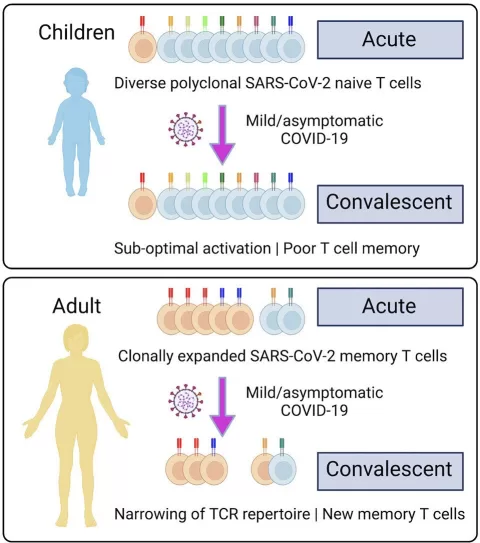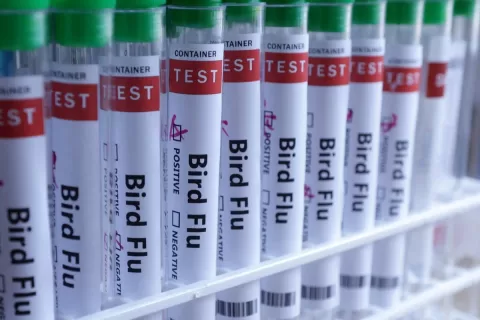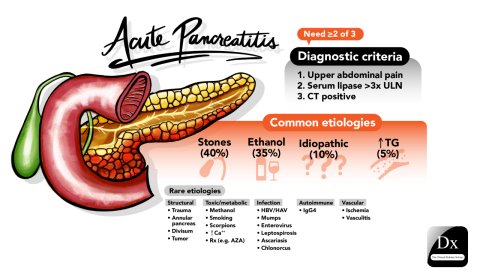The alarming measles outbreak in Texas has recently garnered national attention, particularly following the tragic news of the second measles-related death linked to this epidemic. Officials reported that an unvaccinated child, 8-year-old Daisy Hildebrand from Gaines County, succumbed to the disease after suffering from pulmonary failure. With Texas measles cases skyrocketing to over 481 confirmed instances, many are concerned about the overall effectiveness of the MMR vaccine amidst increasing hesitancy towards vaccinations. Tragically, as highlighted by health officials, these fatalities underscore the importance of measles prevention methods, especially for unvaccinated children who are at the greatest risk for severe outcomes. The ongoing situation raises serious discussions about measles deaths in Texas, and the urgent need for a renewed focus on public health initiatives to combat this preventable disease.
The current situation regarding the spread of the measles virus in the Lone Star State has become increasingly critical, with officials continuously monitoring the rising infection rates. This recent surge has placed significant strain on public health resources and has sparked discussions about the necessity of vaccination programs. With a concerning number of individuals, particularly those in certain communities, remaining unvaccinated, health advocates are emphasizing the vital role of the measles, mumps, and rubella vaccine. The recent fatalities tied to the outbreak highlight the deadly implications of this viral disease and the potential risk it poses to vulnerable populations. To effectively navigate this crisis, it is imperative that communities adopt comprehensive approaches to enhance awareness and implement effective prevention strategies.
Understanding the Measles Outbreak in Texas
The ongoing measles outbreak in Texas has raised significant alarm among health officials and the public alike. With devastating reports of two confirmed deaths, including that of unvaccinated children, the urgency for proper measles prevention methods has never been more apparent. The most recent victim, an 8-year-old girl named Daisy Hildebrand, succumbed to complications from the virus, highlighting the severe ramifications of the public’s hesitancy toward vaccinations. As the state grapples with over 480 confirmed measles cases, it is crucial to understand the context surrounding this ongoing epidemic and the factors contributing to such widespread transmission, particularly in under-vaccinated communities like the Mennonite population in Gaines County.
As the outbreak stretches across various counties, Texas health officials are advocating strongly for the MMR vaccine’s effectiveness, stating that two doses are 97% effective in preventing measles. This statistic reiterates the message that proper vaccination is critical to safeguarding not only individual health but also community-wide safety. The shift in public perception regarding measles and vaccination is vital, as it can significantly impact future outbreaks, particularly in urban settings where unvaccinated children are more prevalent.
In the face of escalating measles cases and fatalities, it is essential to examine why the state is witnessing such a rise in cases and deaths related to measles, particularly among unvaccinated children. Comparing the current number of cases to previous outbreaks, including the notable 2019 surge, demonstrates a worrisome trend that could lead to more severe public health implications if left unaddressed. Public health campaigns aimed at improving awareness of measles, its complications, and preventative measures are urgently needed. This includes addressing misconceptions regarding the MMR vaccine and reinforcing the importance of vaccinations in preventing these outbreaks from recurring.
Measles Deaths in Texas: A Tragic Reminder
The tragic deaths of two children in Texas due to measles have starkly illustrated the fatal potential of this preventable disease. These heartbreaking incidents have drawn national attention and increased scrutiny of vaccination practices, particularly in communities with significant levels of vaccine hesitancy. The loss of Daisy Hildebrand has served as a crucial reminder of the importance of public health measures and vaccination as a defense against infectious diseases. Health officials are now working tirelessly to encourage vaccination within communities, particularly among a demographic that has historically been reluctant to receive the MMR vaccine due to misinformation and skepticism towards mainstream medical advice.
Furthermore, these incidents not only highlight the risks associated with unvaccinated children but also call into question the public health systems in place to mitigate such outbreaks. Despite ongoing efforts from the CDC and local health authorities, the spread of misinformation continues to hinder vaccination rates, perpetuating a cycle of preventable deaths and illnesses. Advocacy for vaccination alongside robust public health education is paramount for preventing future tragedies.
The apparent increase in measles deaths in Texas and beyond should serve as a wakeup call to both community members and health officials. With ongoing reports of measles-related fatalities, the urgent need for measures that promote vaccination becomes increasingly clear. Understanding how the disease can escalate to severe outcomes, especially in high-risk demographics, is essential for forming a united front against the disease. Public health officials have reiterated that the only way to truly eliminate measles deaths is through comprehensive vaccination efforts, including community outreach and targeted campaigns to increase coverage rates among hesitant populations.
The Critical Role of the MMR Vaccine
The MMR vaccine has long been heralded as the most effective means of protecting against measles, mumps, and rubella. Recent reports indicate that the vaccine is 97% effective after two doses, showcasing its critical role in not only individual protection but also in fostering community immunity. However, despite the statistical evidence supporting the MMR vaccine’s efficacy, a segment of the population remains skeptical, sometimes due to misinformation spread through various channels. Health officials emphasize re-establishing confidence in vaccines as essential in combatting the current outbreak and preventing similar situations in the future.
Moreover, the vaccine’s ability to dramatically reduce the number of measles cases cannot be overstated. Historical data reflects that widespread inoculation campaigns have led to the near-eradication of the disease in many countries. Therefore, it is paramount for health officials to continue educating the public about the benefits of the MMR vaccine while addressing fears and misconceptions that may deter families from vaccinating their children. By working to improve perceptions about the safety and effectiveness of the vaccine, communities can collectively work towards reducing measles cases and, ultimately, preventing tragic outcomes.
In addition to promoting the MMR vaccine’s effectiveness, health experts are also working to clarify how important it is to maintain high vaccination coverage in all communities. This is especially vital not only for protecting vaccinated individuals but also for safeguarding those who cannot receive vaccines due to medical reasons or young age. High vaccination rates contribute to herd immunity, which is essential in preventing the spread of contagious diseases like measles. Recent outbreaks serve as a stark warning regarding the dire consequences that can arise when public confidence in vaccines wanes, particularly in light of protectable groups such as infants and those with compromised immune systems.
Preventing Measles: Strategies for Communities
To effectively combat the ongoing measles outbreak, communities must adopt comprehensive prevention methods that bolster vaccination rates and enhance public awareness about the disease. Strategies may include organizing community health drives, especially in regions with low vaccination uptake, where misinformation about the MMR vaccine runs rampant. These events could provide easy access to the vaccine and health education resources, reducing barriers and encouraging parents to immunize their children. Engaging local leaders and influencers to disseminate accurate information about measles and the benefits of vaccination can also foster greater trust and participation in vaccination programs.
In addition, schools play a vital role in measles prevention, serving as key locations for parents to receive information on vaccination and immunization schedules. Schools can implement policies requiring proof of vaccination for enrollment and collaborate with health departments to host vaccination clinics. By taking a proactive stance on measles prevention, communities can more effectively mitigate the risks associated with outbreaks and protect vulnerable populations.
Targeting at-risk groups, such as unvaccinated children, is a crucial component of any measles prevention strategy. Health education campaigns must specifically address the concerns of these communities, dismantling myths and providing evidence-based information about vaccine safety and efficacy. Public health officials should also focus on utilizing digital platforms to reach parents who might be wary of traditional medicine or hesitant to vaccinate. By providing detailed information about the risks associated with measles and the safety of the MMR vaccine, communities can begin to shift perceptions and ultimately improve vaccination coverage. Engaging families in conversations about how measles outbreaks can have serious health consequences reinforces the necessity of preventative measures for all children.
Addressing Misinformation About Measles and Vaccination
Misinformation surrounding measles and the MMR vaccine has become a formidable barrier in eradicating the disease. Many families may hesitate to vaccinate their children due to unfounded claims about vaccine safety or the notion that vaccine-preventable diseases no longer pose a threat. It is essential to strategize a comprehensive public health campaign that challenges the misinformation currently being circulated and provides clear, science-backed information about the dangers associated with measles and the overwhelming effectiveness of vaccinations. This effort would involve collaboration between health departments, community leaders, and medical professionals to share accurate messaging that resonates with parents and caregivers alike.
To dismantle the myths associated with measles and the MMR vaccine, community outreach programs can be initiated to provide education in various settings, such as places of worship, schools, and community centers. Utilizing testimonials from healthcare professionals who can speak to the real-life experiences with measles and its consequences further strengthens the argument for vaccination. By empowering communities to talk openly and factually about measles, a stronger commitment to vaccination can be cultivated, ultimately resulting in healthier populations and fewer outbreaks.
In the battle against the misinformation epidemic, utilizing social media and digital communication channels can be highly effective in reaching diverse audiences. Public health entities must create engaging content that emphasizes the importance of vaccines and addresses common misconceptions, while also highlighting personal stories and case studies that showcase the realities of measles outbreaks. By ensuring that credible voices are amplified throughout these channels, the negative narratives surrounding vaccines can be countered, building a more informed public. Establishing trust and open dialogues about vaccination can help foster environments where families feel empowered to make the right health choices for their children.
The Impact of Unvaccinated Children on Public Health
The undeniable impact of unvaccinated children is a pressing issue that affects public health stability, especially during an outbreak like the current measles epidemic in Texas. With recent statistics showing that unvaccinated children are at a significantly higher risk of contracting measles and experiencing severe complications, the health community must confront the challenges posed by vaccine hesitancy in various demographics. This rise in unvaccinated populations creates a ripple effect, placing not just the children at risk but also endangering community members who rely on herd immunity for protection. Health officials must prioritize educating parents on the critical role vaccinations play in safeguarding public health.
Addressing the linkage between unvaccinated children and outbreaks is crucial. When vaccination rates fall below critical thresholds, measles can spread rapidly, as evidenced in West Texas with its high case count. Health systems need to implement strategic initiatives that not only inform parents about the risks associated with measles but also provide easily accessible vaccination services. Creating an environment that promotes dialogue and understanding between healthcare providers and families is key in increasing vaccination rates among previously hesitant or unengaged populations, ultimately working to protect the larger community against infectious diseases.
Collaborative Efforts to Contain the Outbreak
In response to the escalating measles outbreak, Texas health officials are calling for collaborative efforts to effectively contain the situation. This involves coordination between state health departments, educational institutions, community leaders, and local healthcare providers to facilitate mass immunization campaigns and distribute accurate information about the dangers of measles. Enhanced communication channels and joint programs can create a comprehensive approach that ensures access to vaccinations and education surrounding the importance of the MMR vaccine. With a cohesive strategy, health authorities can improve community responses and prevent further spreading of the virus.
Moreover, the Centers for Disease Control and Prevention’s involvement underlines the seriousness of this public health crisis. The deployment of resources and experts to help manage and contain the outbreak can provide the necessary support to overburdened local health systems. By leveraging the strengths of various organizations, these collaborative efforts aim to effectively address the ongoing outbreak and alleviate growing concerns surrounding measles, fostering an environment that champions vaccination as the primary preventive measure.
The collaborative model extends to leveraging the support of community leaders to advocate for higher vaccination rates. By promoting positive narratives about vaccinations and encouraging families to participate in immunization campaigns, these leaders can significantly influence public perception. Public events that highlight the importance of vaccines, especially during outbreaks, can serve to unite communities around a common health goal, leading to greater participation and engagement in vaccination initiatives. The effort to contain the outbreak in Texas provides an opportunity to educate the public and reinforce the critical narrative that public health relies on communal responsibility towards vaccination.
Conclusion: The Road to Measles Elimination
The current measles outbreak in Texas serves as a stark reminder of the importance of maintaining high vaccination coverage to safeguard public health. The recent fatalities and alarming number of cases underscore the need for a renewed focus on vaccine education and community engagement. To move forward towards the elimination of measles, public health officials, educators, and community leaders must collaborate and emphasize the safety and effectiveness of the MMR vaccine. An informed public, armed with the right knowledge about measles prevention methods, can play an essential role in preventing future outbreaks and protect the most vulnerable populations.
By working together and countering misinformation, communities can build resilient health systems that prioritize vaccination. The tragic cases seen in Texas should catalyze renewed commitment towards immunization as a cornerstone of public health policy. Achieving measles elimination is within reach, provided that we collectively commit to a future where unvaccinated children no longer pose a risk to themselves or their communities.
In conclusion, the road toward eliminating measles in Texas and beyond is paved with education, accessibility, and a unified stand against vaccine misinformation. As we reflect on the recent outbreaks and their tragic consequences, it becomes increasingly clear that the threats posed by measles remain significant; hence, a robust approach to vaccination is essential. Health officials must continue to advocate for the MMR vaccine while dismantling barriers that contribute to vaccine hesitancy. Only through concerted efforts can we ensure that every child is protected and that such outbreaks become a relic of our past.
Frequently Asked Questions
What are the current measles cases and deaths in Texas related to the outbreak?
As of now, Texas has reported at least 481 confirmed measles cases linked to the current outbreak, with two tragic deaths, including an 8-year-old unvaccinated child from Gaines County. The outbreak is part of a larger increase in cases, with Texas accounting for a significant number of the national total.
How effective is the MMR vaccine in preventing measles during the Texas outbreak?
The MMR vaccine is highly effective, with two doses providing about 97% protection against measles. During the ongoing measles outbreak in Texas, vaccination is crucial to prevent further infections and deaths, especially among unvaccinated children.
What are the measles prevention methods recommended amidst the outbreak in Texas?
Recommended measles prevention methods during the Texas outbreak include vaccination with the MMR vaccine, educating communities about the importance of immunization, and maintaining good hygiene practices. It’s essential for unvaccinated children to receive the vaccine to prevent future cases.
What should parents know about unvaccinated children and the risk of measles during the Texas outbreak?
Unvaccinated children are at a significantly higher risk of contracting measles, especially during the current outbreak in Texas, which has seen numerous cases and some fatalities. Parents are urged to ensure their children receive the MMR vaccine to protect them and others in the community.
Are there any known treatments for measles for affected patients in Texas?
Currently, there are no specific treatments for measles. The best defense against the disease is prevention through vaccination. During the Texas outbreak, the focus remains on addressing cases through supportive care and encouraging vaccination to halt the spread.
How has the recent measles outbreak impacted communities in Texas?
The measles outbreak in Texas, particularly affecting under-vaccinated communities, has resulted in significant health impacts, including hospitalizations and fatalities. The situation has raised awareness about vaccination and the importance of community immunity to prevent disease outbreaks.
What actions are Texas health officials taking to contain the measles outbreak?
Texas health officials are working closely with the CDC to address the measles outbreak by promoting vaccination, providing education to the community, and deploying resources to manage the spread of the virus effectively.
How can the public stay informed about the measles situation in Texas?
The public can stay informed about the measles outbreak in Texas by following updates from the Texas Health and Human Services website, local health departments, and reputable news sources that are reporting on the ongoing situation and vaccination efforts.
| Key Points |
|---|
| Second death in Texas measles outbreak: 8-year-old Daisy Hildebrand from Gaines County, unvaccinated |
| Cause of death: Measles-related pulmonary failure; no underlying health issues |
| Total cases in West Texas: At least 481 confirmed, with 56 hospitalized |
| National context: Over 600 measles cases in the U.S. in 2025, double from last year |
| Kennedy’s visit: Attended Daisy’s funeral, expressed support for affected families |
| Mennonite community significantly under-vaccinated: 315 cases reported since January |
| CDC involvement: Dispatched workers to aid in managing the outbreak |
| Vaccination effectiveness: MMR vaccine is 97% effective in preventing measles |
Summary
The recent measles outbreak in Texas has resulted in devastating consequences, including the death of an unvaccinated child. Officials are urging vaccination to contain this ongoing public health crisis. With a significant number of cases spreading rapidly in the Mennonite community, health efforts are focused on raising awareness and increasing vaccination rates, especially in vulnerable populations. The situation underscores the importance of vaccination in preventing preventable diseases like measles, highlighting the potential risks of maintaining a low vaccination coverage.
The content provided on this blog (e.g., symptom descriptions, health tips, or general advice) is for informational purposes only and is not a substitute for professional medical advice, diagnosis, or treatment. Always seek the guidance of your physician or other qualified healthcare provider with any questions you may have regarding a medical condition. Never disregard professional medical advice or delay seeking it because of something you have read on this website. If you believe you may have a medical emergency, call your doctor or emergency services immediately. Reliance on any information provided by this blog is solely at your own risk.







